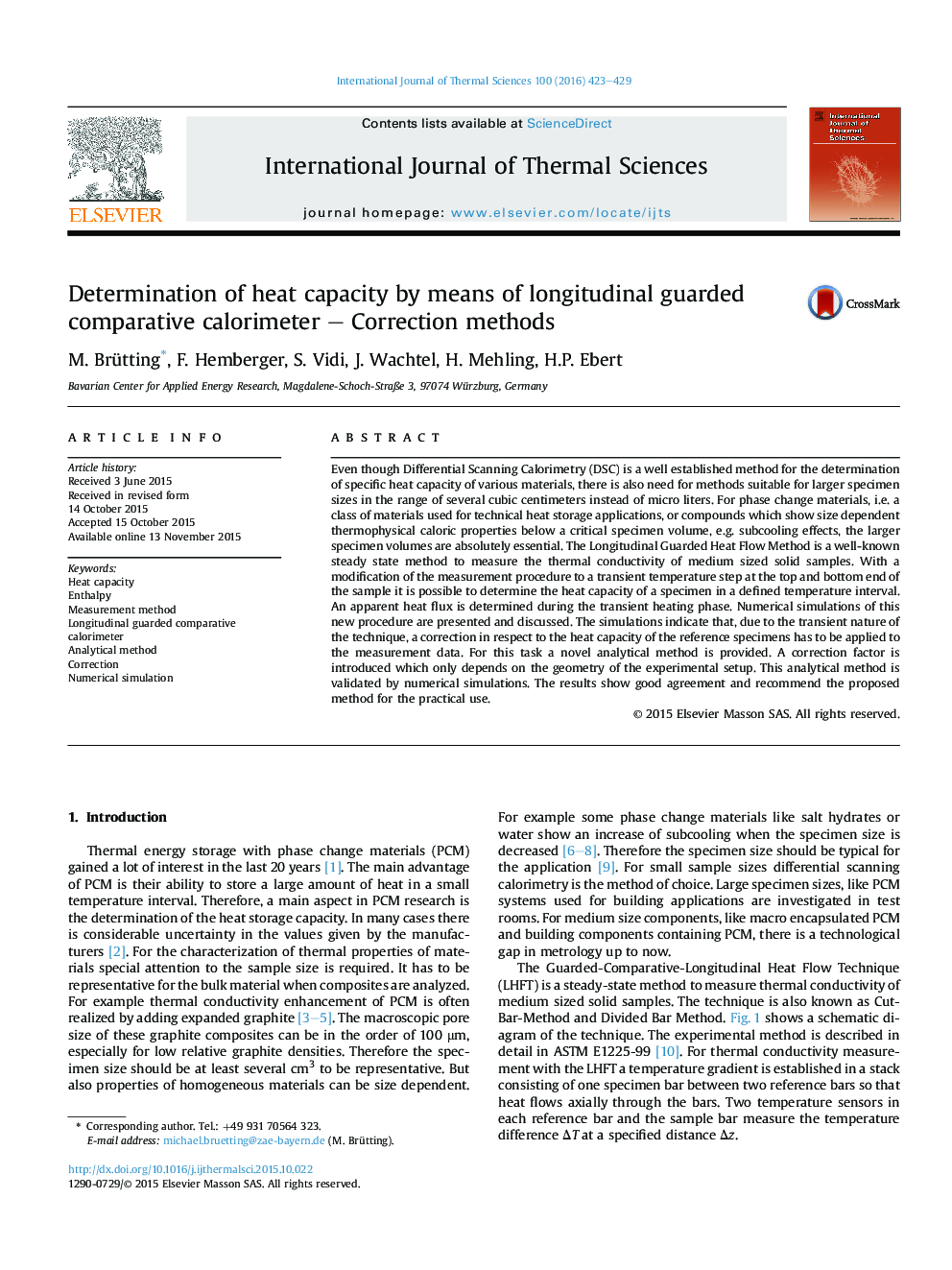| Article ID | Journal | Published Year | Pages | File Type |
|---|---|---|---|---|
| 669104 | International Journal of Thermal Sciences | 2016 | 7 Pages |
•New method to measure specific heat capacity of medium sized solid samples is introduced.•New method to measure latent heat of phase change materials is introduced.•Numerical analysis of the measurement process is presented.•Analytical correction method that significantly improves measurement results is developed.
Even though Differential Scanning Calorimetry (DSC) is a well established method for the determination of specific heat capacity of various materials, there is also need for methods suitable for larger specimen sizes in the range of several cubic centimeters instead of micro liters. For phase change materials, i.e. a class of materials used for technical heat storage applications, or compounds which show size dependent thermophysical caloric properties below a critical specimen volume, e.g. subcooling effects, the larger specimen volumes are absolutely essential. The Longitudinal Guarded Heat Flow Method is a well-known steady state method to measure the thermal conductivity of medium sized solid samples. With a modification of the measurement procedure to a transient temperature step at the top and bottom end of the sample it is possible to determine the heat capacity of a specimen in a defined temperature interval. An apparent heat flux is determined during the transient heating phase. Numerical simulations of this new procedure are presented and discussed. The simulations indicate that, due to the transient nature of the technique, a correction in respect to the heat capacity of the reference specimens has to be applied to the measurement data. For this task a novel analytical method is provided. A correction factor is introduced which only depends on the geometry of the experimental setup. This analytical method is validated by numerical simulations. The results show good agreement and recommend the proposed method for the practical use.
